Movie Review – Gold
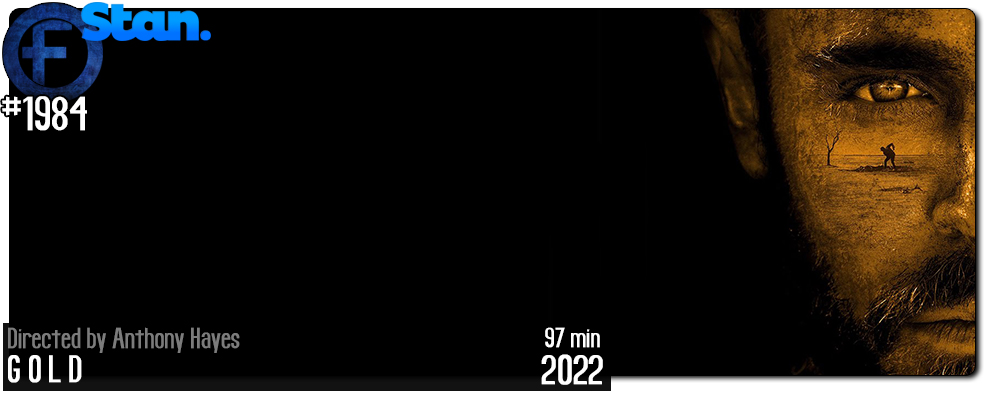
Principal Cast : Zac Efron, Anthony Hayes, Susie Porter, Akuol Ngot, Andreas Sobik.
Synopsis: When two men discover the biggest gold nugget ever found they must find a way to excavate it.
********
If you’re in the mood for a survivalist thriller, look no further than Tom Hanks’ memorable Cast Away. If Cast Away feels too safe, too “Hollywood” for your tastes, and you’re after something with a bit more punch (and a shitload more flies), absolutely do yourself a favour and check out Anthony Hayes’ scabrous, sandblown dramatic chamber piece, Gold. Hayes, no stranger to the big screen as an actor in films such as Rabbit-Proof Fence, the AFI Best Picture of 2005 Look Both Ways, Animal Kingdom and zombie-flick Cargo, pulls double duty as both one of the leads as well as directing, and helms this dour, depressing masterpiece filmed in the South Australian desert.
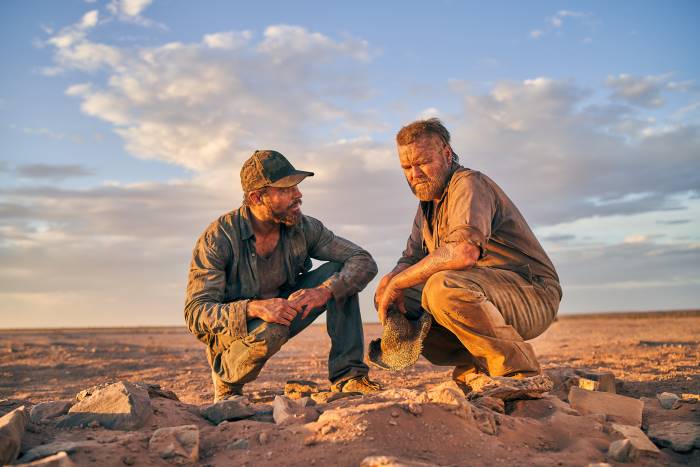
In the near future, the Earth has fallen into a dystopian apocalyptic landscape. A man (Efron), travelling through the blasted desert, recruits a local to drive him to a mysterious place of utopian employment. Along the way, their vehicle breaks down, with the pair stumbling into the discovery of an enormous nugget of gold. With limited supplies to hand, the man makes a deal with the driver (Hayes) to stay with the gold whilst his associate returns to civilisation to obtain a digger in order to extract the previous metal. Over the subsequent days, the man suffers the effects of exposure and injury in the blistering heat, staving off ravenous wild dogs as well as poisonous scorpions and snakes. Along with a dwindling water supply, the man encounters a travelling vagrant (Susie Porter), who believes he is hiding something all alone out here in the desert. With help available only via contact through a half-broken satellite phone, the man struggles with hallucinations, constipation and exhaustion in combating the severe elements; all to protect an enormous lump of gold.
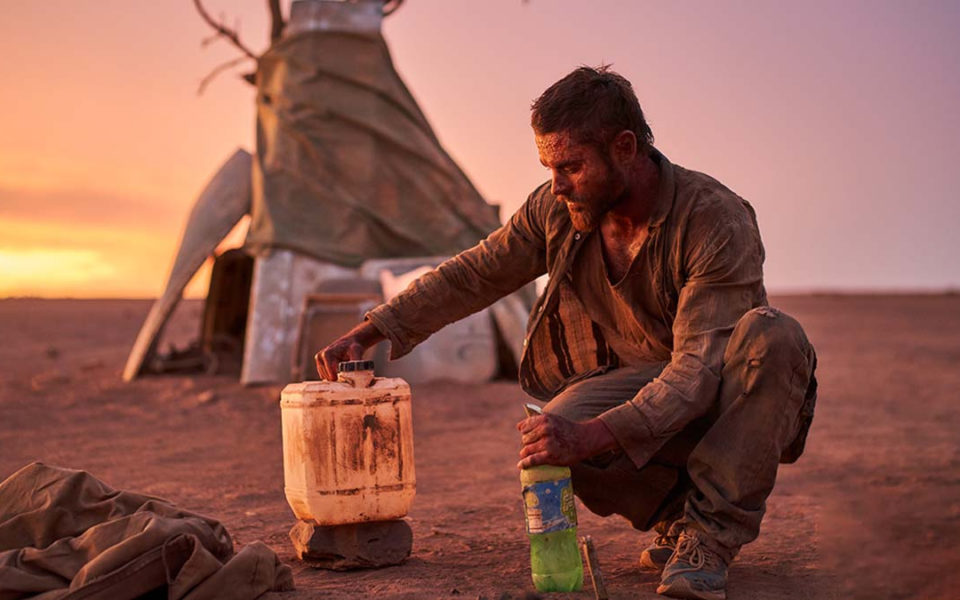
I’m not sure what the pitch to Zac Efron was for Gold, but somewhere beneath the blistering sunburn and fetid animalism the Hollywood pretty-boy saw an opportunity to stretch himself as an actor. Gold, written by Hayes and his writer wife Polly Smyth, isn’t what you’d call a dialogue-heavy movie, nor a challenge to develop interpersonal characterisations. Instead, the film is a small-scale survivalist thriller in which Efron’s unnamed traveller pits himself against the outback Aussie elements, an oblivion of scorched earth and unrelenting smothering of loneliness. As a result, the one-time High School Musical teen heart-throb and rising Hollywood capital-A actor takes on the grizzled look of Leonardo DiCaprio in The Revenant to play the part, dumped in the unrelenting landscape of outback Australia and, essentially, left to fend for himself. Efron has proven a capable actor in past films but he’s never taken a role quite like this: assaulted by flies, skin blistering in the searing temperatures, accosted by a variety of sandstorms, wild animals and a limited supply of water, Efron dives deep into his skillset to deliver a truly remarkable performance.
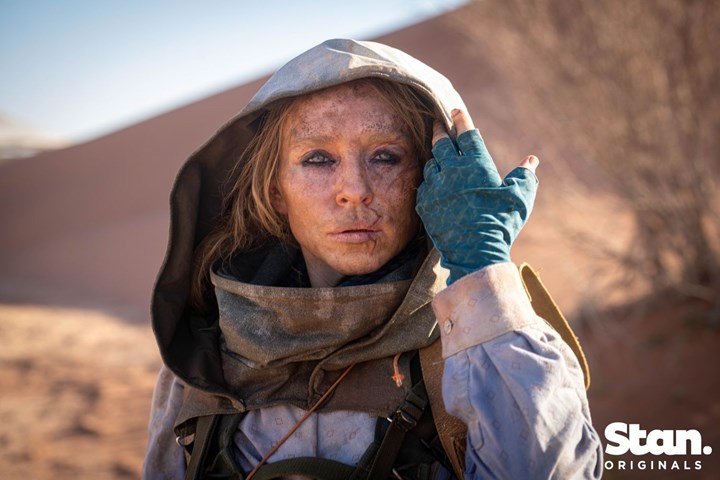
The film is almost totally devoid of humour, other than the rather amusing visuals of seeing Efron trying to take a shit and failing – not once, but twice – and has an atmosphere of suffocating dread pervading throughout. As with most of these kinds of Mad Max-inspired apocalyptic films, social norms have broken down and life has become an “every man for himself” scenario, played out repeatedly with the dynamic between Efron and Anthony Hayes’ belligerent tour guide character at odds almost immediately, before circumstance pulls them together. The arrival of Susie Porter’s menacing vagrant traveller character at the film’s mid-point spurs the narrative in a new and increasingly frantic direction; now, Efron’s increasingly fraught central character not only has to deal with the environment but also another human who might attempt to steal the gold he’s guarding. Both Hayes and Porter, themselves talented actors in their own right, are very much second fiddle to Efron’s clear-eyed (yet scoured by grime and grit) Robinson Crusoe character, although it should be noted that Hayes has a couple of decent scenes with Efron and very much holds his own.
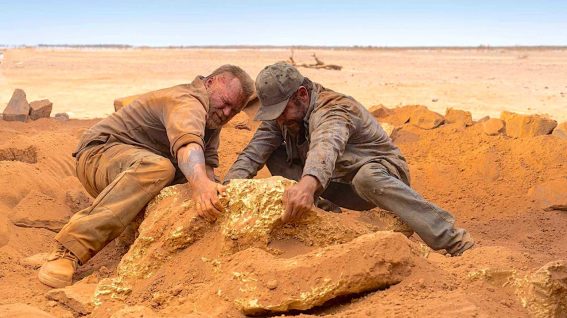
Shot with a minimalist style, against the blighted landscape of Leigh Creek’s desolately cruel barrenness, Gold boasts solid lensing from cinematographer Ross Giardina (Catch The Fair One), who utilises the dominating desert visuals to sublime effect. He somehow turns the photography on Gold away from being the typically bucolic tourist market glossiness into an unholy vacuum of life and hope, as intimidating an effort indeed. The dusky browns and stark blasted whites of the outback are quite literally a canvas of death in which Efron is placed, the distance between any singular point a torture test for the eye and soul, exactly the kind of withering scope a story like Gold excels at. Accompanying Efron, Hayes and Porter in this gruelling marathon of survival is an equally sour, comfortless score by composer Antony Partos (Animal Kingdom, The Rover), a weird theremin-sounding piece of strings and itchy, discordant refrains. Hayes and his editors maintain audience interest – honestly, the film will be described by some as “a slog”, and they’d be accurate – with clever pacing to give the illusion of protracted time passing quickly, keeping things bubbling along when by rights it should be large stretches of nothingness.
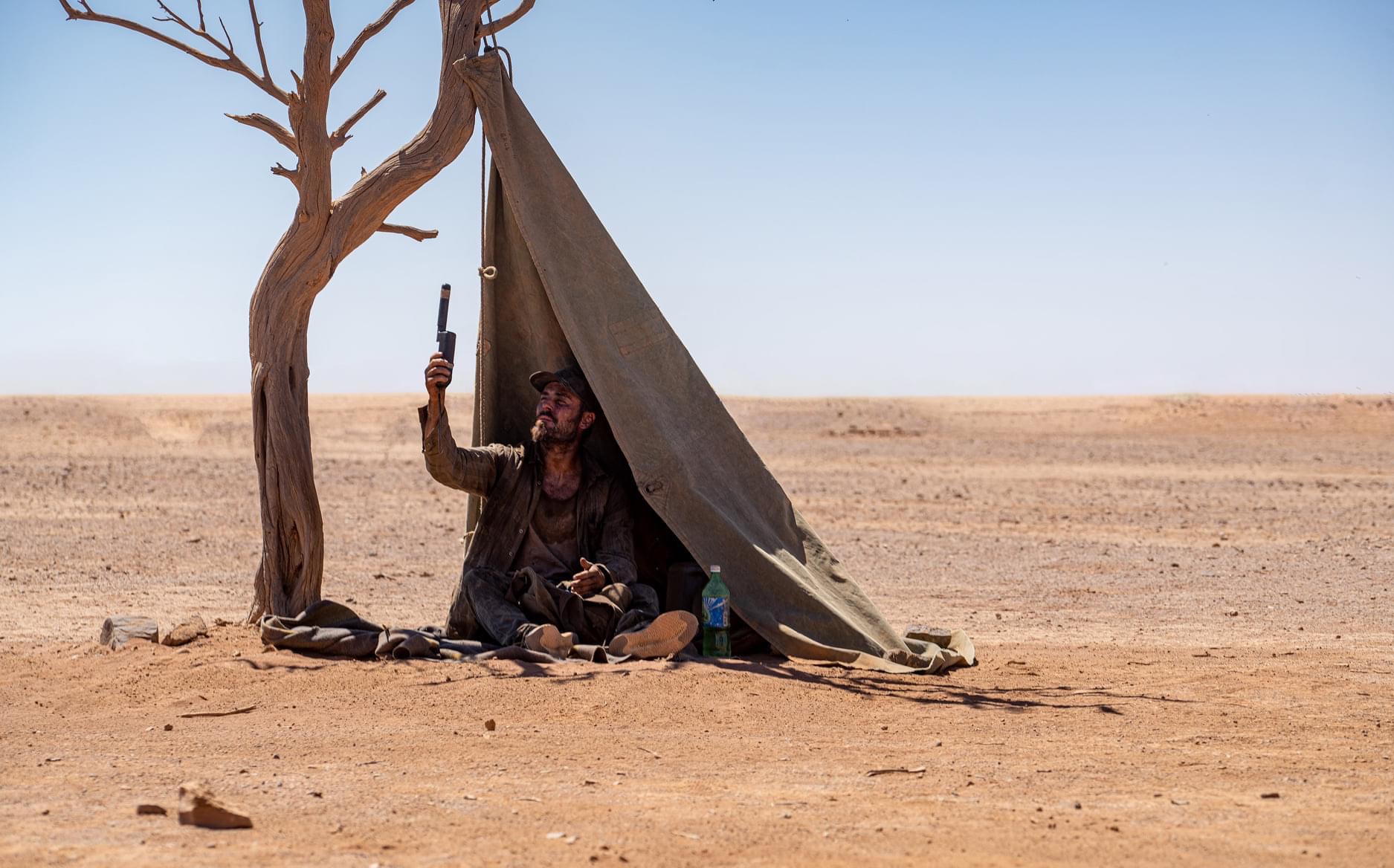
Gold will not be for everyone. Fans of Efron’s chiselled looks and glistening skin in big-budget Hollywood fare will find sorrow and melancholy here, the actor transformed into the kind of putrid future-hobo character George Miller should commence legal action over. I think it’s arguably one of his most soul-baring screen appearances, and if these are the kinds of choices he’s prepared to take on, I think we’re in for a treat in future. Personally, I thought Gold was a great little anarchic piece of fiction, dark as the ace of spades and fuelled by disfunction and greed. Anthony Hayes’ film is a crackled, burnt-frypan of a movie, bitter and completely devoid of joy or hope, and the perfect misanthropic escapade for today’s tormented age.
